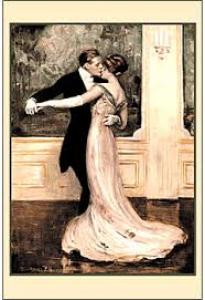FOR THE LOVE OF MOTHER
My best friend Kwitonda wants to marry my mother, who is his mother’s best friend. However Mama Kwito is strongly opposed to the idea and puts up a spirited fight to stop the wedding from happening. My mother is no pushover though…
FOR THE LOVE OF MOTHER
by AngelaMama Kwito’s face expressed utter disbelief. After the initial shock, she descended on my mum with kicks and blows. We restrained her. Mama Kwito was shouting at mum who had recoiled in her seat. As much as she was aware of her best friend’s bouts of uncontrolled anger, and she had anticipated a vehement reaction from her, mum was taken aback by the violence of Mama Kwito’s ire. She grabbed her handbag and ran out of the house. Kwitonda followed her, probably concerned that she could fall down the stairs.
Mama Kwito shook herself from my grasp and moved quickly to the dining table. She grabbed a plate of vegetables and smashed it on the ground. The food spilled on the floor and some splashed on her expensive dress and shoes. Startled, she took in the whole mess in disbelief, as if waking up from a daze. She collapsed in a sofa and sobbed uncontrollably. I tiptoed into the kitchen to prepare some chamomile tea with honey. Back in the sitting room, I sat next to her and put the mug of herbal tea on the coffee table. Her sobs reduced gradually as I put my arm around her shoulders. I passed her a few tissues and after she had calmed down, I handed her the mug of tea. As she sipped on the tea she started talking more to herself than to me. She couldn’t believe that her only son had chosen to marry a woman who could be his mother. “I can’t accept that! No I can’t!” she kept repeating. Once her cup of tea was finished, Mama Kwito thanked me and assured that she was feeling better. She retired to her room as I cleaned the floor and cleared the table before leaving. I used my key to the apartment to lock the door behind me.
Mum and Kwitonda were waiting for me in the parking lot of the apartment block. I could see that mum had been crying. We were all shaken and we remained silent throughout the journey back to my place where Kwitonda dropped me. We had witnessed Mama Kwito’s bouts of anger on a few occasions and that’s how I had learnt to manage her, but she’d never been angry at my mother, Kwitonda or myself.
When Uwituze’s parents realised that their 15 years old daughter was pregnant, they decided to have her aborted. The rich merchants of Rwamagana, an important market town in the East of Rwanda, couldn’t stand the shame of their daughter giving birth at such a young age and out of wedlock. Uwituze, however, vehemently opposed that decision and when she realised that her mother was trying to feed her some abortion pills, she ran away to her God-mother’s place and stayed there until she delivered a baby boy. She called him Kwitonda, a name that means ‘wisdom’. Six months later, Uwituze’s boyfriend, a 17 years old student from her neighbourhood, passed away. Uwituze was so devastated that her father took her for holidays to Kenya, where he eventually enrolled her in a boarding school. After secondary school, she remained in Kenya to study law at the university.
During the war in mid-May 1994, after Rwamagana fell to the rebels, Uwituze’s parents and siblings and their neighbours were summoned to the market place for a meeting. After they had congregated there, four rebels just opened fire on them. The shootout went on for several minutes. Kwitonda who was then eight, was shielded by his grandfather’s body when he fell on the ground. Terrified, he remained motionless among the bodies long after the shootout had ended. Finally he carefully extricated himself from underneath the bodies that were weighing on him. A deafening silence covered the market place where bodies of his family and neighbours and strangers laid sprawled on the tarmac. He was the only survivor. He ran as fast as he could. Ahead he met a group of people fleeing and joined them. They came across an empty homestead and entered. There was a water tap near the entrance. Kwitonda washed himself and cleaned his blood soaked shirt. After a short rest the group resumed its journey and late in the evening, they reached Kabuga, an important market town in Kigali, Rwanda’s capital city, 37km East of Rwamagana. They joined a crowd at the market place where food was being distributed.
At the end of the war Kwitonda was taken by the ICRC to an orphanage, where Uwituze, who had gotten a job with the United Nations that year, traced him. She took him with her to Kenya and enrolled him in one of the best schools in Nairobi. All those events took a toll on Uwituze and she became over protective of her son. She wouldn’t accept that she had a problem though and refused any professional help. Kwitonda settled in well. He became very popular and his new Kenyan friends, who found his three syllables name too long, shortened it to “Kwito”. However memories of the horrors he went through remained fresh in his mind. Every May on the date his family was slain, he would wake up early and attend church service to pray for their departed souls.
Two weeks after the dinner went sour, I got a call from Mama Kwito. She had flown in my grand-parents and my uncle and was hosting them at her place. Grandmother had accepted Mama Kwito’s invitation on condition that grandfather would be part of the journey. However since neither could speak English, my uncle joined them to act as an interpreter. Mama Kwito wanted me to organise for them to visit my mum, “to talk sense into her mind” and convince her to drop her plans of marrying Kwitonda. “Cyimana, she’s your mother and Kwitonda is your friend. Please talk to them. Mahirwe is too old for him. And she will not bear him any children. That would be the end of my family tree,” she pleaded. Oh that’s THE concern, I thought. I agreed to try and organise the meet up. Mum was initially annoyed that Uwituze had invited and hosted her family without her knowledge. However, she agreed to meet the visitors. She received them at the home she’d been sharing with Kwitonda for a few months.
Three years after Uwituze became a teen mother, Mahirwe who was then 20, fell pregnant with me after being raped by her pastor. She lived in Nyamirambo, a highly populated neighbourhood of Kigali. Her father was a civil servant and her mother a housewife. Mahirwe was due to graduate from secondary school. Taking her through high school had been a struggle for her parents. Mahirwe had self-taught hair plaiting by observing hairdressers and helping them out at any opportunity. During the school holidays, she would plait hair and save the money for her shopping. When he heard about his daughter’s pregnancy, my grandfather sided with the pastor. He disowned Mahirwe claiming that she was out to tarnish the pastor’s name. The pastor often bailed him out of tight financial corners and he didn’t want to lose such a friend. Grandfather chased Mahirwe away and she vowed never to forgive him. She also stopped attending church services.
Mahirwe moved in with her aunt Nyiraneza in Gikondo, another neighbourhood in Kigali. Nyiraneza employed her in her shop. When Mahirwe went into labour, she was taken to hospital by her mother and Nyiraneza. I was born after close to a five-hour labour but with no complications. When asked which name she would give to her baby boy, my mother answered “Icyimanimpaye” meaning “My gift from God”. Her mother and Nyiraneza exchanged a look and smiled. Icyimanimpaye was a name their own mother, who had eight daughters, wished she had given to a son she never had. My grandmother lifted me and said “Cyimana, my first grandson, welcome, welcome sweetheart. Grow up, go to school and take up responsibilities!”
Running Nyiraneza’s shop, my mum became very good at meeting customers’ needs and her input improved revenues significantly. When the war broke out in October 1990, the business went down as the conflict escalated. In April 1994 when the genocide started, I was five. We fled the country and managed to reach Goma, the capital city of North Kivu in DRC, then Zaire. On the way we met a former classmate of mum’s who had relatives in Goma. They offered us accommodation.
With the little money she had left, mum bought us a ticket to Nairobi, Kenya. We settled in a bedsitter in a commercial cum residential mall in Kawangware slum. Mum started plating hair and soon she had a big clientele. Two years later she partnered with a Kenyan friend to open a hair salon. I was attending the best primary school in the slum but my mother wished for a better school for me.
At the turn of the millennium, mum returned to Rwanda to renew her passport and get one for me. Her father was in jail, accused of taking part in the genocide. Her mother’s life revolved around caring for her jailed husband by taking food and other items to him, and trying all avenues possible to prove his innocence and settle his release. She was assisted by her son who was working for an international NGO. Mum didn’t pay any visit to her father despite grandmother’s supplications. “Let him experience how it feels to be wrongly accused,” she responded whenever grandmother would ask her to forgive the old man. One day mum met a former client who needed a trusted person in Nairobi to supervise the loading and offloading of his trucks. She gladly offered her services.
Upon returning to Nairobi, a shock awaited mum. Her business partner had sold off the hair salon and moved to an undisclosed location. Mum immersed herself in her new venture, offering her services to more wealthy truck owners from Rwanda, and before long the new venture proved much more lucrative than the hair salon. Her clientele expanded to business owners from various sectors to whom she became a representative in Nairobi. Mum opened an office in the Industrial Area and bought a car. She acquired a maisonnette in Komarock and rented it. A year later she bought a flat in Jamhuri Estate and we moved from the slum. She enrolled me in the same school as Kwitonda’s.
My grandparents and my uncle were moved by mum’s happiness and their visit turned into an opportunity for daughter and father, who had since been released from jail by a Gacaca court, to finally reconcile. When she heard of the turn of events, Mama Kwito chased our relatives away. Kwitonda put them up in a fully furnished apartment for the remainder of their stay in Kenya. We were dumbfounded as we had never seen Mama Kwito in such a state of rage before. I was convinced she regretted the day she met my mother.
Mama Kwito and mum met at a Sports Day event at the school that Kwitonda and I attended. Impressed by the fact that then 15 years old Kwitonda could converse with his mother in Kinyarwanda, my mum gifted him a copy of ‘Ibirari by’insigamigani’, a book that explains the origins of some Kinyarwanda proverbs. Kwitonda confessed to me years later that he was there and then smitten by the elegant, bubbly new friend of his mother. Our families became very close. Kwitonda and I spent countless sleep overs at each other’s place. We were like brothers. Kwitonda took me under his wing, mentored me and often protected me from bullies.
Kwitonda greatly admired my mum. She instilled in him a passion for business. Despite numerous admonitions from his mother, Kwitonda never addressed mum as Mama Cyimana. He always called her Mahirwe as if they were age mates, which mum found amusing and sweet. Eventually Mama Kwito gave up and got used to that state of affairs. I was very close to Mama Kwito, whom I considered as my second mother. She taught me respect for hard work, and whenever she had a bout of anger, I was the only one who could calm her down. Our mothers often exchanged on the circumstances in which they became mothers, in hushed tones whenever we were present, but we managed to piece things together. Mama Kwito tried to convince mum to forgive her father, but mum wouldn’t hear any of that.
At 25, Kwitonda completed a master’s degree in business development and marketing. He found a good job as a marketing executive but quit after a few months to start his own business. Mama Kwito was annoyed as she felt he should have cut his teeth in a stable job, a position I shared. However mum supported Kwitonda, took him under her wing and mentored him. For three years they met on a regular basis. She helped him set goals, strategize and stay focused as he built a successful marketing consultancy. Kwitonda gave mum fresh ideas on how to grow her business and she was one of his first clients. Their relationship evolved gradually and irresistibly from a mother/mentor-and-son kind of relationship to a romantic one. I guess mum realised that Kwitonda was no more the teen she helped Uwituze bring up. He had become a responsible hard working young man and the potential companion for life she longed for.
Mum often felt the urge to share her new found happiness with Mama Kwito, but she feared how her strict friend would take the fact that she loved a man 17 years younger, more so Uwituze’s beloved son. However when they jointly purchased a house and moved in together, they decided that it was time to inform Uwituze.
The following morning I was woken up by a call from an angry Kwitonda. He had come across a long post done by his mother on Facebook. I quickly logged in and I was horrified. The post was going viral. Mama Kwito was portraying my mum as a ‘mother’ who was sleeping with her ‘son’. The netizens had gladly grabbed the post and were sharing it in the hundreds. Most sided with Mama Kwito and tore the couple to pieces, accusing mum of bewitching Kwitonda. I was taken aback. I knew Mama Kwito was deeply annoyed, but I wasn’t expecting her to post anything on social media. A former girlfriend of Kwitonda created a Facebook group dubbed “Kwito’s Girls to the Rescue”. Within days, the group’s membership attained thousands of young women who spent most of their time pouring vitriol on my mother. Soon the tabloids joined in to our horror. Mum was a prominent figure in the business community and had been featured in a number of publications for overcoming great odds to succeed in business; she was considered a role model to women in business. Her choice to marry a man who could have been her son shocked the conservative Kenyan society. She and Kwitonda chose to keep a low profile. They abstained from responding to any of the posts and refused several interview requests from the media.
One day as mum was shopping at Toy Market, she was attacked by a group of five women and was almost stripped naked. She was rescued by merchants who took her to hospital. She was put on bed rest for a threatened abortion. For me this was the last straw. For the first time in my life, I refused to pick up Mama Kwito’s calls and ignored her sms’. She claimed she had nothing to do with the attack and I believed her, but the aggression was one result of her post on Facebook. She had gotten the news from the media and, remorseful and apologetic, she frantically reached out to mum, Kwitonda and me, but we ignored her. She even went to Kwitonda’s place but the guard who had strict instructions not to let her in turned her away.
Two months later, I got a call from Mama Kwito’s personal assistant. She was trying to reach her for an important document. “You are not aware? She’s been away for six weeks now. She’s taken a long leave,” she explained. Intrigued, I called Mama Kwito. She was happy that I had finally returned her numerous calls. She confirmed that she was undergoing anger management therapy. That afternoon I drove through the gates of Mama Mueni Anger and Stress Management Centre in Kitisuru, Nairobi. It was a luxurious place built on a three acre property. Mama Kwito gave me a long motherly hug. We sat at a terrace overlooking a beautiful mature garden. The place was so serene and quiet it was difficult to believe that there was a busy road right behind the canopy of trees bordering the property.
The furious reaction of the netizens and the media to her post, and the realisation that her best friend was in danger as a result had led Mama Kwito to finally take action and deal with her problem.
“After 1994, I focused so much on the family I had lost and cast all my hopes on Kwitonda to revive it that I failed to acknowledge the new family I was given: yours,” she said softly, looking in a distance, then turning to face me after a short pause. “Mahirwe is a sister to me. She helped me bring up my son, she was with me through thick and thin and whenever I visit Rwanda, your grandparents welcome me as their daughter.”
I was amazed at how much Mama Kwito had changed within a span of a few weeks. There was an aura of calmness and serenity around her and I noticed for the first time a strand of white hair accentuated by her elegant hairdo.
“How is Mahirwe? And Kwitonda? ” she asked.
“They are doing well,” I said.
“You know, after what happened it dawned on me that my son’s happiness was more important than keeping my family tree alive. I know if he marries Mahirwe I will never have grandchildren; but I don’t care anymore. You can’t build a family on strife, anger and fight. I just hope that someday, they’ll forgive me,” she said as tears welled in her eyes again. Surprisingly she hadn’t gotten the news that mum was pregnant.
“Mama Kwito, would you be allowed to go out for at least a day?” I asked.
“Yes but I don’t want to. I still have two weeks to go and I would like to meet them at the completion of my therapy,” she said resolutely.
“Well, they are getting married tomorrow. Surely you can’t miss the wedding? ” I revealed.
Our entry in the wedding hall caused a stir among the 20 or so close friends and relatives invited. I led Mama Kwito to a seat next to my grandparents and behind the place reserved for the bride and groom. I excused myself to join Kwitonda and mum in the room where the bridal party was preparing. Despite my assurances, they were concerned that Mama Kwito would spoil the wedding.
Shortly Kwitonda and I walked in the wedding hall and took our place at the altar. Kwitonda stole a glance at his mother. She smiled at him but he remained stone faced. Soon mum walked in on her brother’s arm. My uncle represented my grandfather and the family. True to her bold nature, mum had chosen a short ivory dress that emphasized her five-month pregnancy. A tiny ivory hat was holding her beautifully breaded hair, and her face wasn’t veiled. She was stunning. I observed Mama Kwito. Her jaw dropped and she instinctively grabbed grandmother’s hand. Her eyes wetted. She looked at me, smiled, let go of grandmother’s hand and quickly regained composure. I breathed a sigh of relief and focused on the ceremony as my uncle handed mum’s hand over to Kwitonda.
When the priest asked if anyone was opposed to the marriage, mum and Kwitonda bent their heads as if expecting a blow, then raised their eyes towards Mama Kwito. She was beaming. They finally relaxed and smiled back at her. The priest resumed the ceremony.
Similar posts
Leaving The Past In The Past. Part 2
by vickyoziwrites
The journey of a girl who goes back into her past and the consequences that follow it.
- Oct, 30 2015
- Realistic Fiction Romance
Fire of Caveat - Part 2
by Velantra
When a woman catch a man by getting pregnant, it is war.
- Dec, 1 2015
- Realistic Fiction Romance
After All, You're My Hero
by M.D Khamil
May his soul rest in peace and granted paradise . . .
- Mar, 25 2015
- Realistic Fiction Tragedy
Betrayal Of The Innocent - Part 2
by Velantra
The first and only thing that went through her mind was: “This is not good. This is trouble……”
- Nov, 2 2015
- Realistic Fiction Romance
Betrayal of The Innocent - Part 4
by Velantra
He sits back, but under the table, she could feel his leg touching hers. She felt this warm feeling over her body, turning into goose pumps. She pushed her leg closer to his, locking her foot behind his….
- Nov, 15 2015
- Realistic Fiction Romance
The Last Waltz
by Lea Ebio
he should have look for her when they still have the chance to be together...
- Jan, 18 2016
- Realistic Fiction Romance






